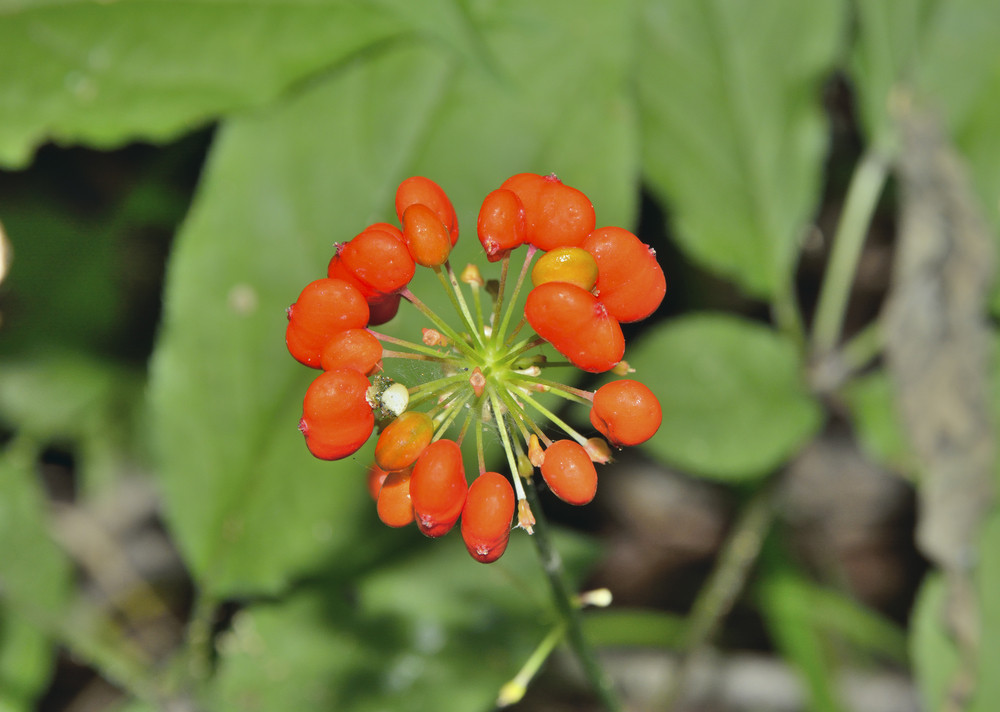Ginsenoside Rg3 may help treat metastatic breast cancer
 Breast cancer is the second leading cause of cancer death in women, only after lung cancer, and there is an estimated 12% chance that a woman in the United States will develop breast cancer in her life.
Breast cancer is the second leading cause of cancer death in women, only after lung cancer, and there is an estimated 12% chance that a woman in the United States will develop breast cancer in her life.
Scientists are always working on discovering better treatments for breast cancer which are potent to inhibit breast cancer cells but less harmful to normal cells.
Medicinal herbs appear promising options because they exhibit inhibitory effects against cancer cells without bringing much toxicity to normal cells. A good case is Paclitaxel, a chemotherapy drug extracted from the bark of the Pacific yew tree that is now widely used to treat various cancers.
Ginsenoside Rg3, a ginseng saponin from ginseng, shows significant anticancer properties, which has attracted attention from a number of scientists.
A recent study reviewed the mode of action of ginsenoside Rg3 in various cancer models and its value as an anticancer treatment for breast cancer.
The possible mechanisms of action of ginsenoside Rg3 in breast cancer cells include:
- Induce apoptosis and inhibit proliferation
- Inhibit migration, invasion, angiogenesis, and metastasis
- Reduce multidrug resistance and enhance therapeutic effects in combination therapy
- target Aquaporin 1 to inhibit tumor growth, angiogenesis, metastasis and drug resistance.
- Other suggested mechanisms of action like modulating immunity, increasing genotoxicity and enhancing sensitization to radiation.
Clinical trials of ginsenoside Rg3 in cancer patients
Only three clinical trials related to the use of ginsenoside Rg3 have been published, two on non-small cell lung carcinoma (NSCLC) and one on hepatocellular carcinoma. The researchers reviewed all three studies to discuss the possibility of using ginsenoside Rg3 in cancer treatment.
In the first study, Lu P, et al. evaluated the effects of ginsenoside Rg3 on the postoperative life span of patients with stage II-III NSCLC. About 133 participants were given either Rg3 alone, Rg3 plus chemotherapy, or chemotherapy alone. The study results illustrated that Rg3 plus chemotherapy improved the 3-year survival rate and patients receiving Rg3 had a lower incidence of adverse effects and a better immune system.
As for the second study, Li Y, et al. investigated the clinical benefits of ginsenoside Rg3 used as adjuvant therapy in patients with stage III-IV non-small cell lung cancer with EGFR mutations. A total of 124 patients were given either a tyrosine kinase inhibitor alone or tyrosine kinase inhibitor with Rg3. The results showed that Rg3 improved the median progression-free survival by 2.5 months, reduced drug resistance and caused fewer side effects.
Furthermore, the therapeutic effects of ginsenoside Rg3 on patients with hepatocellular carcinoma, a common liver cancer were examined. A total of 228 patients were treated with either trans-arterial chemoembolization (TACE) alone or in combination with Rg3. The study results demonstrated that the patients given with TACE plus Rg3 had longer median overall survival and reduced adverse effects related to TACE.
The results of these clinical trials showed the benefits of a combination of ginsenoside Rg3 with existing therapeutic agents in cancer treatment. Though these trials are not related to breast cancer, they provide an insight of using ginsenoside Rg3 as an adjuvant in the treatment of breast cancer in the future.
Researchers also pointed out the limitation of the review study due to the very small number of both animal and human studies available and other factors like the unknown purity of ginsenoside Rg3. More research is needed to explore the mechanism of action and therapeutic effects of ginsenoside Rg3 on breast cancer.
References
Nakhjavani, M.; Hardingham, J.E.; Palethorpe, H.M.; Tomita, Y.; Smith, E.; Price, T.J.; Townsend, A.R. Ginsenoside Rg3: Potential Molecular Targets and Therapeutic Indication in Metastatic Breast Cancer. Medicines 2019, 6, 17.


